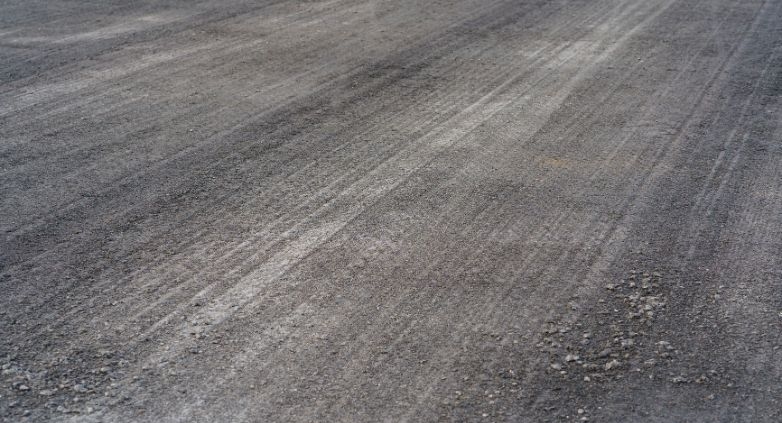Milled Asphalt Driveway – Is it the right choice for you?
When considering the installation of a new driveway for your home or business, one compelling option to explore is a milling asphalt driveway. It offers a balance of economy and durability, making it a noteworthy choice for surfacing exterior areas around your property.
Opting for a milling asphalt driveway can prove to be both an economical and durable solution, standing out among alternatives for construction purposes. This surfacing option brings several advantages that surpass traditional gravel, making it an appealing choice for discerning homeowners and business owners.
Despite the prevalent use of gravel for various applications, it’s essential to recognize that viable alternatives exist. Asphalt milling not only efficiently replaces gravel but also introduces additional benefits, elevating its appeal for those seeking a resilient and cost-effective solution for their driveways and exterior surfaces.
So, what is milled asphalt, and how are they made?
Milled asphalt, a sustainable solution, is essentially old asphalt recycled by crushing it into gravel. Through compaction, the crushed material hardens and binds, creating a foundation for laying new asphalt. The common practice in replacing asphalt roads involves using a milling machine to crush existing asphalt to a specified depth, and the resulting material is then vacuumed up for recycling. This recycled asphalt chunk is grounded and redistributed, offering a foundation for the new asphalt while contributing to environmental sustainability. With characteristics similar to new asphalt or gravel, milled asphalt provides a sustainable alternative with unique benefits.
But is milled asphalt the right choice for you?
Asphalt milling is a good option if you intend to install new pavement in your home or business, given its many advantages. The milled asphalt is laid and compacted with tremendous pressure to form a robust and flexible driveway or road; while they are normally not ideal for streets with a lot of traffic, they function well for small private roads and driveways.
What is milled asphalt?
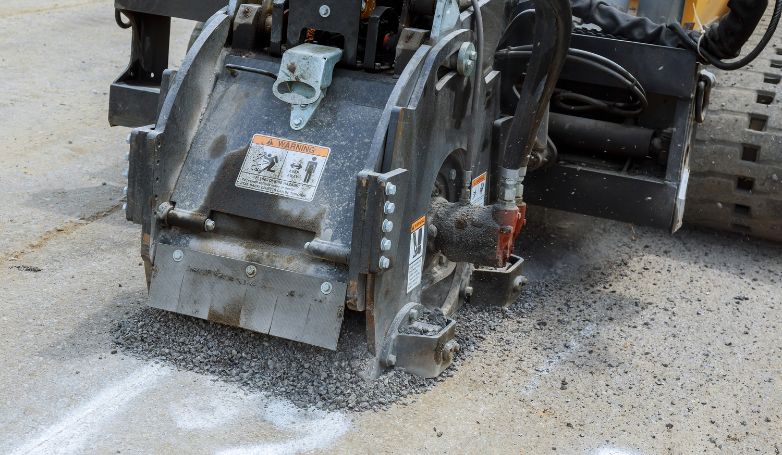
Many people failed to understand that old asphalt can assume a new life by being recycled after serving its purposes. The milled asphalt driveway results from extracted old pieces of asphalt that were crushed back into tiny pieces, similar in size to gravel.
They usually perform this method of disintegrating asphalt parts with the aid of a milling machine. Milling machines crush asphalt to a specified depth and further vacuum the ground material.
You can use the milled asphalt by applying it on your driveway or road surface and then compressing it. The milled asphalt can form a surface nearly as strong as paving with a hot asphalt mix if compacted; hence, you can also use it as a foundation for subsequent paving with tar and chip or hot mix asphalt.
You can reuse the asphalt product extracted during milling for many other projects at a lower cost, and it can also be a substitute for hot asphalt and stone gravel. Milled asphalt can also withstand extreme weather elements and is less costly than other materials used for paving.
While many owners of properties do not know what asphalt milling will do for them, one thing is for sure; it has characteristics that allow it, in some ways, to be better than the regular gravel alternatives.
How is a milled asphalt driveway installed?
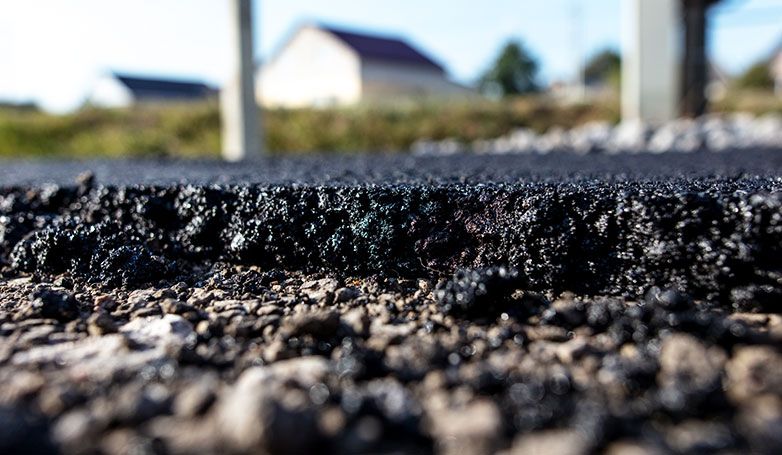
The following steps will help you understand the process behind the installation of milled asphalt:
- Step 1: Measure the old driveway
- Step 2: Clear the Way and grade the surface
- Step 3: Grade your driveway
- Step 4: Compact the soil to create a strong/stable foundation
- Step 5: Add crushed rock base
- Step 6: Install the milled asphalt
- Step 7: Compact your new driveway
Many homeowners and property owners have taken up the practice of using milled asphalt as a substitute for pavers, concrete, and gravel. Still, they often face a dilemma about how to build a surface with the material. Although asphalt milling is an environmentally friendly and cost-effective alternative, it requires specialized equipment for proper installation.
Are you an ambitious DIY individual considering installing your own driveway or simply looking to observe the work that your contractor will do during pavement installation? You can use the highlighted steps for your next project.
Read more: Asphalt Driveway Paint
1. Measure the old driveway
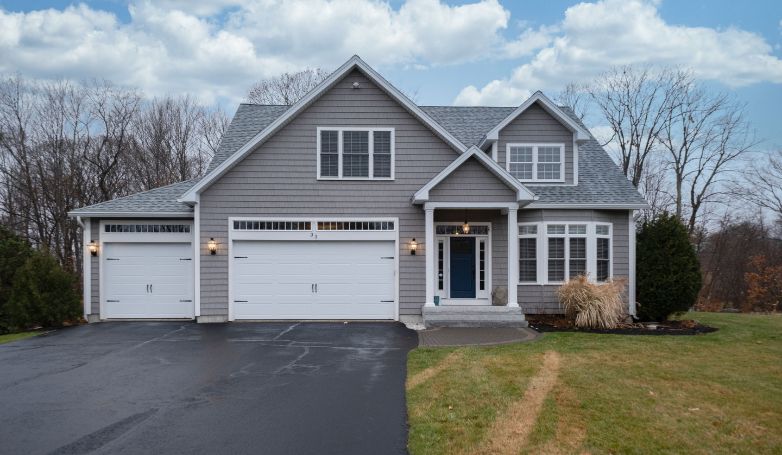
We strongly advise enlisting the expertise of a seasoned milled asphalt contractor to meticulously measure your existing driveway before embarking on any demolition. By doing so, these professionals can provide you with precise insights into the tonnage required for your new driveway, ensuring an accurate and cost-effective project plan. Furthermore, this careful assessment allows the contractor to identify any potential challenges or specific requirements, enabling them to devise a tailored approach to the project. Taking this proactive step not only ensures a smoother demolition process but also contributes to a more efficient and successful execution of your driveway replacement.
2. Clear the Way and grade the surface
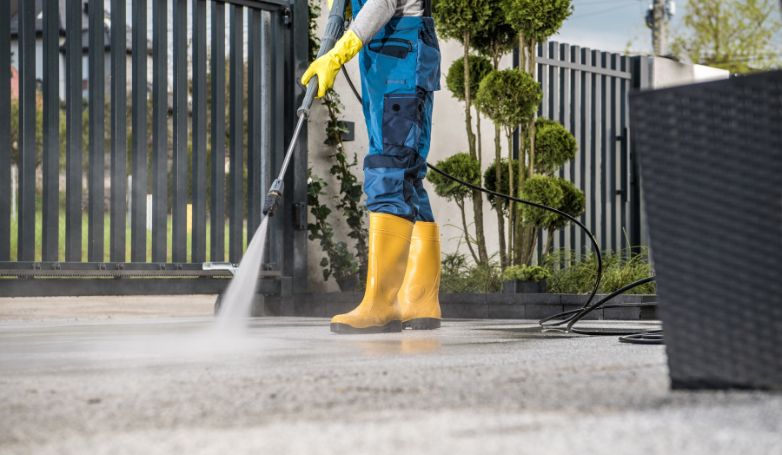
When undertaking the replacement of an existing driveway, thorough preparation is essential. It involves not only clearing the area entirely down to the soil but also meticulously removing any existing pavers, plant matter, debris, and concrete to create a clean canvas. Every fragment and broken gravel must be detached, ensuring a pristine surface for optimal results before advancing to the subsequent stages of the project. Moreover, this meticulous clearing process not only sets the stage for a seamless construction but also facilitates a more accurate evaluation of the materials needed for the new driveway. By investing time in this initial step, you pave the way for a construction process that is both efficient and tailored to the specific requirements of your replacement project.
3. Grade your driveway
Following the clearing of the area, the next crucial step is to ensure the levelness of your space, preventing any potential drainage issues with your new road or driveway. This essential phase is vital for constructing a smooth and well-drained surface. To achieve optimal drainage and avoid water accumulation, it is imperative to establish the correct gradient, allowing water to flow seamlessly off the edges of the driveway or directly to the bottom, ensuring a functional and durable result.
4. Compact the soil to create a strong/stable foundation
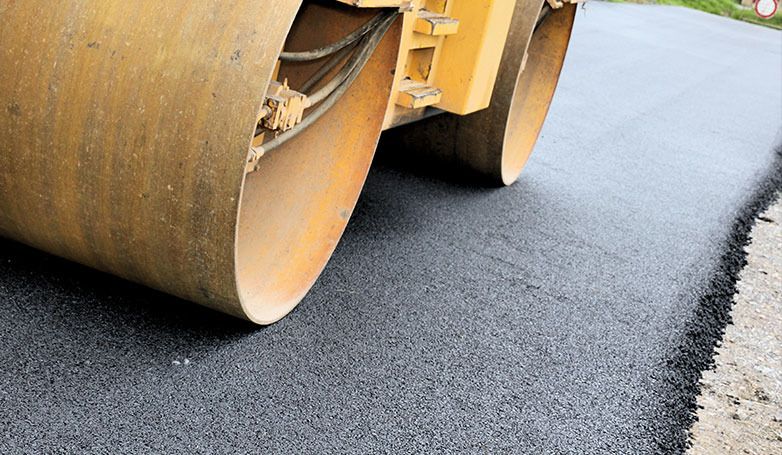
AAfter clearing and grading, establish a robust foundation for your milled asphalt. Use a drum roller compactor with precision, guiding it attentively across the base soil. This deliberate process systematically compresses the soil, eliminating air spaces and loose particles. Beyond strengthening the foundation, meticulous compaction boosts the structural integrity of milled asphalt, ensuring a durable and resilient surface against various environmental pressures and usage demands.
5. Add crushed rock base
Next, add a layer of grounded rock to cover the compacted soil. This provides something that the milling can adhere to, and it offers the surface of your new driveway with even more intensity.
To facilitate drainage, ensure you are using the correct road base mix. You will need about 20 cm of crushed rock for clay-based undersoil, while 10 cm is quite enough for sandy soil. After distributing the crushed rock, allow the project to stay for a few days.
This waiting time will provide a more robust, substantial base to apply the asphalt milling over and enable you to detect and address any potential problems with your initial compaction.
6. Install the milled asphalt
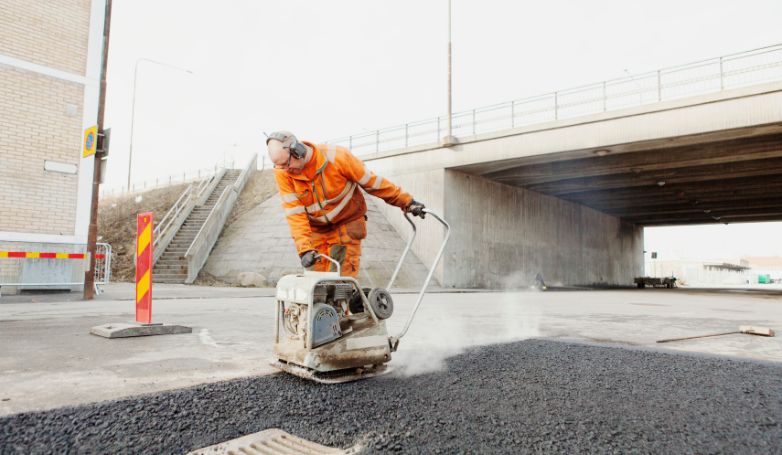
You can begin the distribution of your asphalt milling after creating an entirely stable base. It would be best to put down the milled asphalt over the driveway at a thickness of around 100mm–150mm. Ensure precise spreading, maintaining uniformity while tapering off at the ends. This guarantees consistency with the road base gradient and demands extra care.
You can use a delivery truck to place the asphalt in layers along the driveway or use a bobcat, in this case, to transport the asphalt in place.
7. Compact your new driveway
After distributing the asphalt uniformly, it’s time to compact. You can hire a drum roller compactor and get rolling to polish the surface. The milled asphalt will now be compressed down to 100 mm, and the ends of the driveway would be treated to create an angle of 45 degrees. This step is vital because compaction provides a milled asphalt driveway with its toughness.
Cost of a milled asphalt driveway
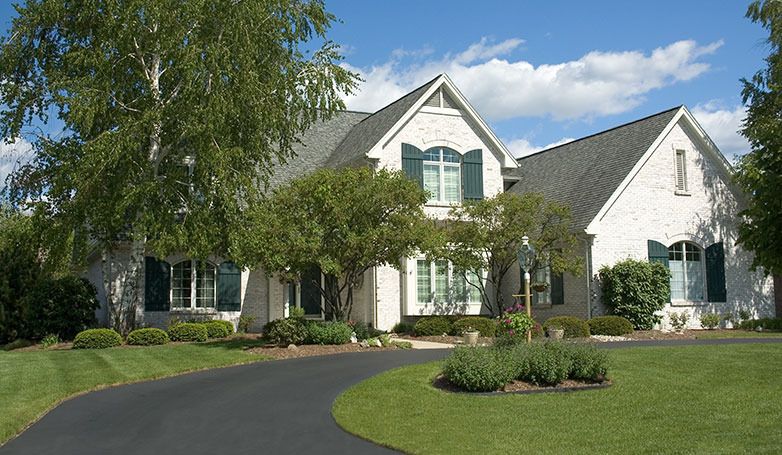
Since milling is the derivative of recycled asphalt pavement, it is much cheaper than fresh asphalt or other paving products, such as gravel.
So, what is the cost of paving a driveway with milled asphalt?
Milled asphalt cost varies from $7–$60 a ton based on the geographical location and the amount of recycled content in the mix. Homeowners usually spend between $55–$460 for milled asphalt to pave a regular double driveway (excluding installation labor and materials). However, expect to pay between $500 and $2,500, including getting the material and installation labor cost.
Milled asphalts are simply previous asphalt projects being grounded into gravel. Since no new materials are used in the making or required to be moved, it costs much less in almost all situations based on how much preparatory work and the material thickness applied.
You will not pay for the production of new materials, the shipment of new materials, or any extra costs associated with traditional paving materials. If you want to save on your next paving project, milled asphalt is the cost-effective option for you.
Milled asphalt durability and maintenance
Asphalt milling is less vulnerable to the elements than conventional gravel products and does not require regular resealing and patching. Over time, a milled asphalt driveway becomes stronger and more rigid, rather than disintegrating as hot asphalt seems to do. Asphalt milling can last 20 to 30 years without resurfacing and resealing, unlike traditional asphalt.
Asphalt milling is more durable than gravel, with hardly any maintenance. The secret to achieving this success is to install it properly at the very start and time to harden the surface. Millings do not need regular raking or refinishing, and with time, the surface will firm up.
Weeds and grass would have an exceedingly tough time sprouting through asphalt milling, even without maintenance, rendering your driveway looking pristine. A correctly installed driveway constructed with milled asphalt can add significant value to your property.
Advantages and disadvantages of milled asphalt driveways
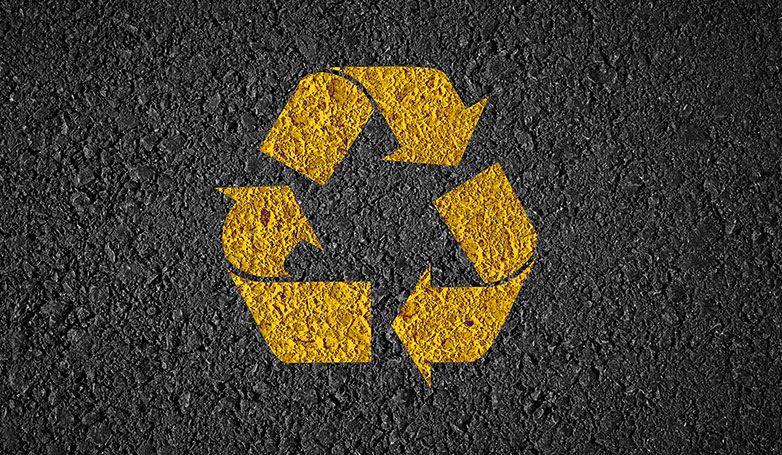
It is entirely up to you to use milled asphalt or otherwise. With the pros and cons mentioned below, you ought to make an informed choice whether to purchase milled asphalt or go with the new traditional kind.
Advantages:
Here are some advantages of this type of asphalt.
It is environmentally friendly
Milled asphalt is an eco-friendly method that lowers the environmental emissions of greenhouse gases. The amount of fuel necessary for recycling asphalt is notably lower when compared to the fuel needed for the mining and processing of asphalt aggregates. Engaging in milling and recycling asphalt not only conserves valuable resources but also contributes to promoting a cleaner environment.
It needs no maintenance
One of the standout features of milled asphalt is its minimal maintenance requirement. The beauty of this attribute lies in its ability to alleviate the need for frequent upkeep, ultimately contributing to an extended lifespan for asphalt driveways. This hassle-free characteristic can be a significant advantage for homeowners looking for a durable and low-maintenance surfacing solution.
Resistant to weather
Beyond its low maintenance, the resilience of asphalt milling shines through in its exceptional ability to withstand various weather conditions. Not only does it generate less dust, reducing the formation of mud, but it also exhibits a notable advantage in snow and ice management. Asphalt milling facilitates quicker snowmelt compared to gravel, and its surface hinders the development of slippery paths during icy conditions. Over time, a milled asphalt driveway further strengthens, enhancing its resilience to the elements and fortifying its durability against weather-related wear and tear.
Cost-effective
The cost-effectiveness of asphalt milling lies in its unique ability to eliminate the need for new materials during construction. Streamlining the building process, using milled asphalt allows contractors to significantly cut costs. By repurposing materials, asphalt milling offers a sustainable, cost-effective solution for those prioritizing financial efficiency and durability in driveway projects.
Sustainability
Asphalt milling is more durable than conventional gravel. It perfectly seals together when compacted by machines, unlike gravel. This makes the driveway surface to be more solid, suitable for those recent gravel roads. You will not need much cleanup afterward by plowing an asphalt milling road because gravel would not be forced back onto your lawn.
Disadvantages:
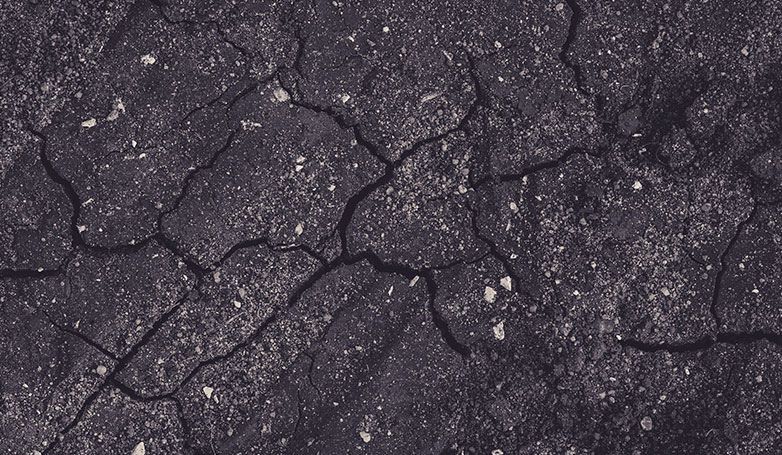
While this type of driveway offers several benefits, it also comes with certain drawbacks. Here, we’ll delve into some disadvantages, particularly focusing on color variation and overall quality.
Color variant
Used asphalt rarely maintains its color like new (virgin) asphalt. Since the material has already been subjected to rain, sunlight, and other conditions, it is already prepared for discoloration. Suppose you are passionate about the deep black color of an asphalt driveway. In that case, you should imagine how the finished product will look compared to fresh non-recycled asphalt, and this may mean opting for fresh asphalt conversely.
Quality
Often, recycling processes may produce quality problems that later transform into cracks or potholes on driveways. Some milled asphalt might not be as good as fresh asphalt regarding quality. This is because milled asphalt quality relies on where and how it is recycled.
Ensure that you do your homework before you buy milled asphalt to make an informed decision. Make sure you buy from a reliable recycling facility to ensure you are getting high-quality milled asphalt.
Can you seal a milled asphalt driveway?
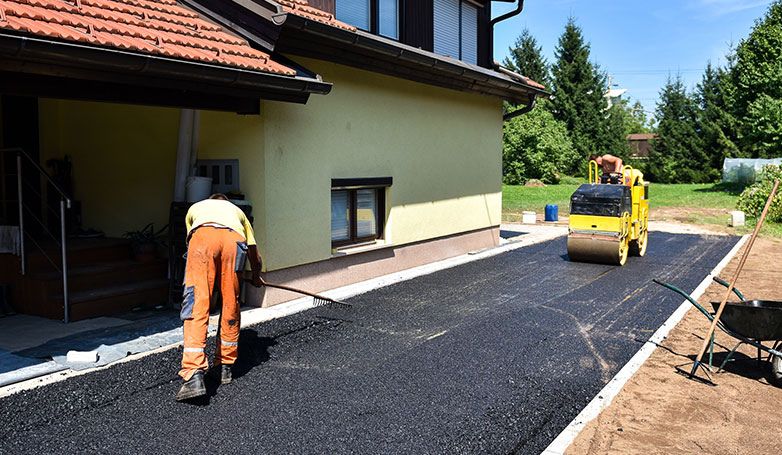
Much like fresh asphalt, you can seal a driveway that is paved with milled asphalt. Many property owners can independently seal their new asphalt driveways, but a milled asphalt driveway is a little more complicated. You can’t always pour a layer of seal coat on and expect success because asphalt milling comes in a wide range of quality.
We advise that you contract an asphalt specialist if you want to seal asphalt milling. A skilled asphalt contractor can inspect your milled asphalt, decide if it requires any fillers or minor repairs, and help select the correct seal coat and application process for your particular circumstance. They will also help determine if you can seal the driveway yourself.
Conclusion
You should consider milled asphalt if you’re searching for an inexpensive and durable material for road or driveway installation. Recycled or milled asphalt is often more cost-effective than fresh asphalt for many projects, while still delivering exceptional performance. It is an environmentally friendly, relatively inexpensive, and efficient solution to your requirements for paving.
The choice between fresh (non-recycled) asphalt and milled asphalt depends on your preference. Hence, consider the pros and cons, and seek professional advice to make an informed decision for your next paving projects.

